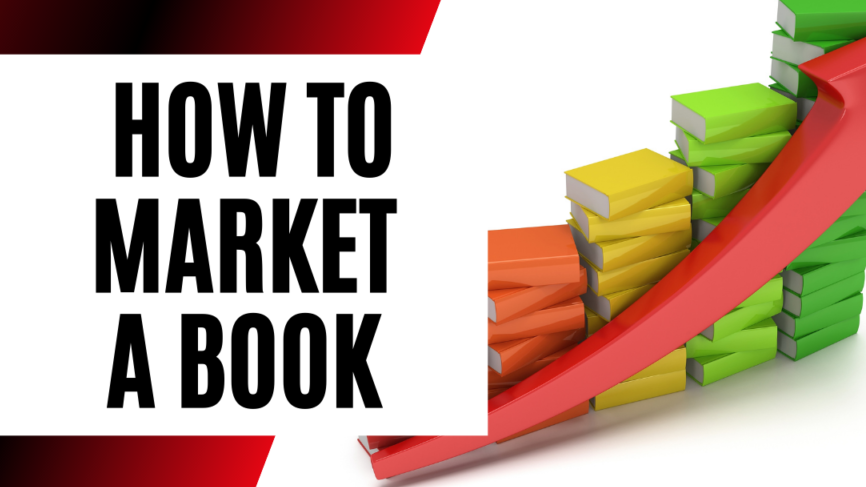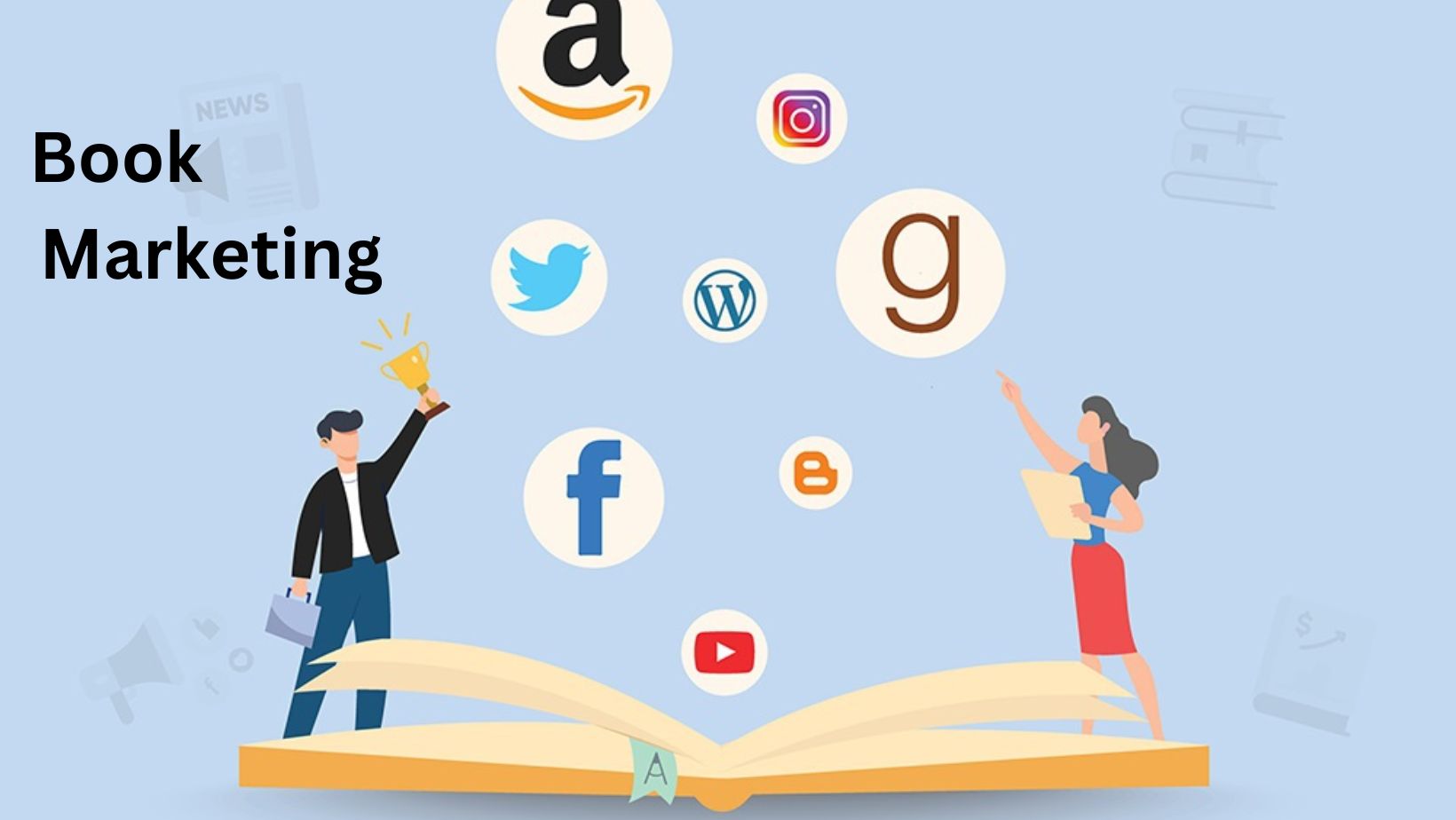As an independent author, promoting your book becomes a full-time commitment. If you lack Book Marketing experience, the prospect of handling everything on your own can be overwhelming. Without a well-defined Book Marketing strategy, your book will struggle to stand out among the 4,700 books released every day. Even if you rely solely on word-of-mouth, it could take years to reach a critical mass of readers. While patience is important, we all desire quicker results, and that’s where Book Marketing comes into play.
Table of Contents
Step 1:Embark Book Marketing Journey

This guide is designed for authors who have already published their books but need assistance in further promoting them. If you’re interested in our guide to a successful book launch, stay tuned, as we’ll be releasing it soon.
We have divided this guide into three main sections, enabling you to follow the steps based on your current stage in the book publishing process. Without further delay, let’s dive right into the first step: Market Research.
Abraham Lincoln once said, “If I only had an hour to chop down a tree, I would spend the first 45 minutes sharpening my axe.” Book Marketing is similar to felling a tree. Without dedicating time to plan, research, and strategize, you’ll find yourself figuring things out as you go, which is not a recipe for success in this industry.
Identify target audience “lives.”
Merely assuming that everyone is on Facebook doesn’t guarantee optimal results for your Book Marketing efforts.
For instance, if you write teen romance, platforms like TikTok and Instagram would be more fruitful than Facebook. Take some time to study different platforms and understand their demographics.
Helpful articles from sources such as
It’s also valuable to seek insights from fellow authors to enhance your knowledge.
Research Marketing Trends
Additionally, brushing up on your marketing skills is essential before diving into any promotional efforts.
While general Book Marketing blogs like
offer valuable insights; you can also extract applicable knowledge for Book Marketing.
If you prefer reading blogs specifically focused on Book Marketing, we recommend checking out
Consulting Service
If you have some extra funds, considering a consulting service could be a worthwhile investment for your Book Marketing endeavors.
Although they can be expensive and finding the right fit may be challenging, a consulting service can greatly contribute to your success.
Two recommended services are
Step 2: Author Book Marketing

Now that we have laid a strong foundation and sharpened our metaphorical axe, it’s time to explore the various Book Marketing options available to authors.
Successful authors have reached their level by building an “author platform,” which consists of multiple connection points with their readers.
For example, Several touchpoints with her readers, including an active Twitter profile with weekly Twitter spaces, a personal website, Facebook Author Profile, an active email list + freebie, and more.
Consistency is key to maintaining a successful author’s platform. An inactive Book Marketing platform can discourage potential readers.
It’s better to excel at five Book Marketing platforms than to have ten mediocre ones.
Author Personal Websites
Emphases the importance of every author having their own personal website. A personal website provides complete control over your online presence, liberating you from the limitations of social media algorithms or advertising platforms.
On your website, you can showcase all your work, link to various platforms, offer lead magnets to your audience, and much more.
Creating a personal author website has become incredibly simple with platforms like WordPress. If you prefer to have a website professionally built, AuthorBytes is a popular service to consider.
When investing time and effort into creating a website, it’s worth considering implementing a blogging strategy. By consistently publishing high-value content on your blog related to your genre, you can attract passive traffic from people searching for relevant keywords.
While this strategy may not suit everyone, it can generate significant traffic in the long run.
Email Marketing for Authors
In addition to personal websites, having an email list is essential for every author. An email list enables authors to stay in touch with their fans, providing regular updates and valuable content.
Through this list, you can notify subscribers about book launches, announce price promotions, engage in email list swaps, and much more. There are some email marketing providers specifically tailored for authors, including ConvertKit, Substack, and MailerLite. These platforms often offer free versions, allowing you to grow and nurture your email list without incurring any costs.
Social Media Strategies

In the current landscape of 2023, social media has become an essential tool for authors to reach and engage their audience effectively.
Building relationships with fans and attracting new ones is best achieved through social media platforms. Even with extensive advertising campaigns, without an active social media presence, it can be challenging to cultivate a meaningful audience.
While authors can find success on various social media platforms, let’s explore the most popular ones:
Twitter for Authors
Twitter remains a powerful platform for authors to build and retain their following. Despite undergoing significant changes, it should not be underestimated. Utilize Twitter in the following ways:
- Tweet regularly to engage your audience.
- Participate in private group chats.
- Explore Twitter Spaces for social audio interactions.
Facebook Author Page
Engage and expand your following on Facebook. Share updates about your books and your daily activities.
Facebook Ads: Running Facebook Ads can be a powerful way to sell more books, but they can be costly. Utilise the platform’s business suite through your Facebook Author Page.
Amazon Author Page
Amazon Author pages, while not a traditional social media account, Amazon Author Central provides valuable tools for authors to manage their Amazon presence.
Claim your books and consolidate them on one page. Share status updates through blog posts, images, videos, and editorial reviews.

TikTok for Authors
Although one of the newer platforms, TikTok should not be disregarded. The #booktok hashtag has fostered a thriving community of authors and writers who share their books through creative short-form videos.
Ads for Authors
Many authors hesitate to invest in ad campaigns, preferring to rely solely on “free” Book Marketing methods. However, running targeted ads can significantly expand your reach and attract readers who may not have discovered your work otherwise. Platforms such as
- Amazon
- BookBub
- Google Search is ideal for running ads.
- TikTok
- Twitter is also worth exploring.
Author Events
Participating in author events provides excellent opportunities to promote your books and connect with readers. From physical conferences to virtual online communities, these events allow you to network and spread the word about your work.
Guest Appearances on Podcasts
Making appearances on popular author podcasts can be a powerful way to share your story and reach a wide audience. While securing guest spots may require effort, employing effective pitching and outreach strategies can help you land interviews.
Step 3: Optimizing Online Presence
Choosing the Right Title
Selecting an engaging and distinctive title for your book is a challenging task. A compelling title should pique readers’ curiosity, stand out from the competition, and reflect the essence of your story. Seek feedback from fellow authors to refine your title ideas, and tools like Reedsy book title generator can be helpful.
Picking a Subtitle
Subtitles can be divisive among authors, with some embracing them and others avoiding them. If you decide to use a subtitle, keep it concise, with a maximum of 3–5 words.
Eye-Catching Book Cover
When designing your book cover, consider basic color theory and understand how colors and imagery are perceived by our eyes and brain. Look for inspiration by browsing bestsellers in your genre on platforms like Amazon.
By implementing these strategies, authors can optimize their online presence and enhance their chances of connecting with their target audience.
Finally, avoid attempting to tell the entire story of your book through its cover. Instead, focus on displaying key elements that captivate the eye and invoke curiosity.
Compelling Book Description
The book description plays a crucial role in converting potential readers into buyers.
A formula that has proven effective for many authors includes:
- The Hook: Pose a question that relates to the reader or piques their interest.
- Follow-Up Blurb: Include a testimonial blurb to enhance credibility and provide social proof.
- Book Description: Write a few paragraphs that offer hints about the plot and introduce the protagonist.
Consider incorporating the following elements:
- Book and Author Comparisons: Compare your book to similar authors or works.
- Author Credentials: Explain why you are qualified to write this book and offer advice.
- The “Why”: Highlight what sets your book apart from others in the genre.
Conclude with a strong call to action, urging readers to purchase your book for more details. If you want to learn more about creating high-converting Amazon book descriptions, refer to our comprehensive guide.
The Right Book Price

Determining the price of your book can be challenging, but it is crucial for successful Book Marketing. Several factors influence a book’s price, including:
- Genre
- Book Length
- Author’s Fame Level
To establish an appropriate price, study the market. Search for your genre on Amazon and observe the prices of the top five books. This serves as a useful starting point.
Price Promotions
Price promotions can attract new readers who may not have discovered your book otherwise. Amazon offers options such as KDP Select, where your e-book is temporarily “free” and exclusive to Amazon, and Kindle Countdown deals that provide discounts without affecting author royalties.
Acquiring Book Reviews
Book reviews are vital for authors to establish credibility and improve visibility in online bookstore search algorithms. Avoid resorting to fraudulent reviews, as long-term success depends on building genuine credibility. Try the following strategies to obtain more book reviews:
- Engage with book bloggers.
- Offer the first chapter of your book in exchange for a spot in a newsletter.
- Find Beta Readers and ARC Readers.
- Utilize Facebook Groups and DM Groups.
Note that Amazon strictly prohibits trading reviews, as it violates their rules. Giving a friend a 5-star review in exchange for the same could result in Amazon removing your book from their store. Additionally, Amazon requires an account to have spent $50 in a calendar year for a review to be valid.
To learn more about acquiring additional book reviews, watch out for our upcoming guide on the topic.
Going Wide
Authors often face the decision of whether to “go wide” or remain exclusive to Amazon. Going wide means listing your book on platforms other than Amazon, such as Barnes & Noble, Apple Books, Kobo, and more.
We will release an article to help you make an informed decision on this matter. Self-publish-on-demand simplifies the process of going wide by generating choice pages with links to various online retailers.
Selling your book directly from your personal website is an option for authors with a highly trusting audience, but it is not widely practiced in the industry.
Conclusion
This guide should provide you with a solid foundation for your Book Marketing strategy.
For a more comprehensive understanding of the specific tactics mentioned in this post, click the provided links to access detailed guides on each topic. Stay tuned as we continue to release more in-depth guides.
If you have any current struggles with Book Marketing, feel free to share your areas of concern.

